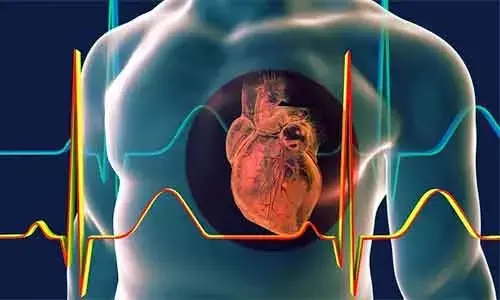- Home
- Medical news & Guidelines
- Anesthesiology
- Cardiology and CTVS
- Critical Care
- Dentistry
- Dermatology
- Diabetes and Endocrinology
- ENT
- Gastroenterology
- Medicine
- Nephrology
- Neurology
- Obstretics-Gynaecology
- Oncology
- Ophthalmology
- Orthopaedics
- Pediatrics-Neonatology
- Psychiatry
- Pulmonology
- Radiology
- Surgery
- Urology
- Laboratory Medicine
- Diet
- Nursing
- Paramedical
- Physiotherapy
- Health news
- Fact Check
- Bone Health Fact Check
- Brain Health Fact Check
- Cancer Related Fact Check
- Child Care Fact Check
- Dental and oral health fact check
- Diabetes and metabolic health fact check
- Diet and Nutrition Fact Check
- Eye and ENT Care Fact Check
- Fitness fact check
- Gut health fact check
- Heart health fact check
- Kidney health fact check
- Medical education fact check
- Men's health fact check
- Respiratory fact check
- Skin and hair care fact check
- Vaccine and Immunization fact check
- Women's health fact check
- AYUSH
- State News
- Andaman and Nicobar Islands
- Andhra Pradesh
- Arunachal Pradesh
- Assam
- Bihar
- Chandigarh
- Chattisgarh
- Dadra and Nagar Haveli
- Daman and Diu
- Delhi
- Goa
- Gujarat
- Haryana
- Himachal Pradesh
- Jammu & Kashmir
- Jharkhand
- Karnataka
- Kerala
- Ladakh
- Lakshadweep
- Madhya Pradesh
- Maharashtra
- Manipur
- Meghalaya
- Mizoram
- Nagaland
- Odisha
- Puducherry
- Punjab
- Rajasthan
- Sikkim
- Tamil Nadu
- Telangana
- Tripura
- Uttar Pradesh
- Uttrakhand
- West Bengal
- Medical Education
- Industry
Hypertonic saline effective adjuvant in refractory heart failure: JACC

USA: Hypertonic saline (HS) administration in patients refractory to ADHF (acute decompensated heart failure) appeared to be safe and well-tolerated as an adjuvant to loop diuretics, according to a recent study in the journal JACC: Heart Failure.
According to the study, hypertonic saline administration was associated with increased diuretic efficiency, fluid and weight loss, and improvement of metabolic derangements, and no adverse respiratory or neurological signals were identified.
Hypertonic saline therapy has been described as a potential management strategy for refractory ADHF, but experience in the US is limited. Jeffrey M. Testani, Yale School of Medicine, New Haven, Connecticut, and colleagues investigated the real-world safety and efficacy of hypertonic saline therapy in cases of refractory ADHF at a large U.S. academic medical center.
The researchers performed a retrospective analysis in all the patients receiving hypertonic saline for diuretic therapy-resistant ADHF at the authors' institution since March 2013. The primary analytic approach was a comparison of the trajectory of clinical variables prior to and after administration of hypertonic saline, with secondary focus on predictors of treatment response.
The researchers identified a total of 58 episodes where HS was administered at a single hospital in 40 patients with diuretic-refractory ADHF.
Key findings of the study include:
- Prior to hypertonic saline administration, serum sodium, chloride, and creatinine concentrations were worsening but improved after hypertonic saline administration.
- Both total urine output and weight loss significantly improved with hypertonic saline.
- Diuretic efficiency, defined as change in urine output per doubling of diuretic dose, also improved over this period.
- There were no significant changes in respiratory status or overcorrection of serum sodium with the intervention.
"These findings suggest an additional rigorous study of HS as a diuretic adjuvant for ADHF is warranted," concluded the authors.
The study, "Real World Use of Hypertonic Saline in Refractory Acute Decompensated Heart Failure: A U.S. Center's Experience," is published in the journal JACC: Heart Failure.
Dr Kamal Kant Kohli-MBBS, DTCD- a chest specialist with more than 30 years of practice and a flair for writing clinical articles, Dr Kamal Kant Kohli joined Medical Dialogues as a Chief Editor of Medical News. Besides writing articles, as an editor, he proofreads and verifies all the medical content published on Medical Dialogues including those coming from journals, studies,medical conferences,guidelines etc. Email: drkohli@medicaldialogues.in. Contact no. 011-43720751


